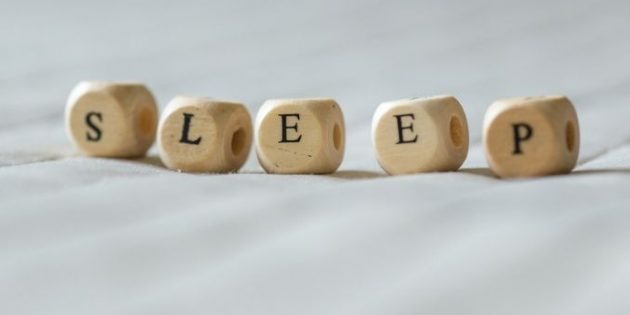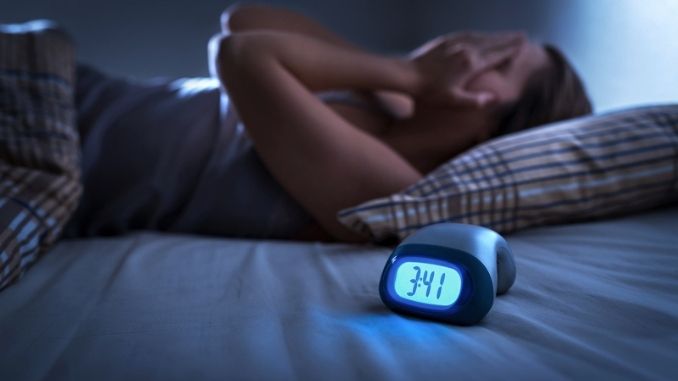The thyroid is a butterfly-shaped gland located at the base of your neck. It produces hormones secreted into your bloodstream and affects virtually every part of your body. The thyroid’s main hormones are triiodothyronine (T3) and thyroxine (T4). T3 and T4 play a significant role in regulating how your body uses energy; in other words, your metabolism. Thyroid hormones are vital to bodily processes such as breathing, heart rate, digestion, and body temperature. An intricate balance of thyroid hormones is essential for proper health and functioning. Too much thyroid hormone is released into your bloodstream, or not enough, and has widespread adverse effects on your body. An underactive thyroid leads to hypothyroidism, while an overactive thyroid is called hyperthyroidism. Thyroid problems have been shown to lead to sleep problems, and thyroid conditions are also risk factors for certain sleep disorders.
Your body operates on a circadian rhythm, which is its 24-hour cycle. The suprachiasmatic nucleus (SCN) is a part of the brain in the hypothalamus that is the master circadian clock. The SCN regulates your circadian rhythm by releasing hormones that control various bodily functions, such as your sleep-wake cycle. When the SCN releases a hormone called thyrotropin, it stimulates the thyroid to release thyroid hormones. If the thyroid is hyperactive or underactive, this can get in the way of your circadian rhythm and sleep.
Hyperthyroidism
Hyperthyroidism (an overactive thyroid) leads to hyperarousal of your nervous system and irritability, which can cause difficulty sleeping. Other symptoms of hyperthyroidism include muscle weakness, constant fatigue, night sweats, and frequent urination urges. Hypothyroidism (an underactive thyroid) can lead to issues tolerating cold temperatures at night and joint and muscle pain that disrupt sleep. Hypothyroidism has been linked to longer times to fall asleep and shorter sleep duration. An underactive thyroid can cause hypersomnia when an individual falls into involuntary lapses of sleep.
Hypothyroidism is the leading cause of hypersomnia due to an endocrine disorder. Hypothyroidism can also be mistaken for sleep-related hypoventilation, characterized as extremely slow or shallow breathing during sleep. Those more at risk of sleep problems due to hypothyroidism are younger individuals, those with lower body fat, and women. Thyroid disease may be a risk factor for restless legs syndrome (RLS), which is a disorder that causes irritable and unpleasant sensations in the legs while the body is at rest. This can often occur while an individual tries to fall asleep and interferes with their ability to fall asleep. This translates to sleep loss and even daytime impairments due to extreme fatigue. Hyperthyroidism is a possible risk factor for night terrors.
Sleep length and quality are linked to your immune system, and those with a weaker immune system are more likely to develop a thyroid disorder. Conversely, your sleep habits may affect your susceptibility to acquiring thyroid disease. One study demonstrated that individuals who slept less than seven hours per day were at a higher risk of hyperthyroidism.
Tips for Sleeping Better
If you are having trouble sleeping, from a thyroid disorder or otherwise, you can take measures to improve your sleep.
1. Find the Right Temperature
The consensus on the perfect temperature for sleep is generally 65 degrees Fahrenheit (18.3 degrees Celsius) or within 60-67 degrees Fahrenheit (15.6-19.4 degrees Celsius). If you have a thyroid disorder, your optimal temperature may fall outside of this range. However, as mentioned earlier, individuals with hyperthyroidism may have night sweats, and hypothyroidism can decrease cold tolerance. You can experiment with different temperatures and see what works best for you.
2. Practice Good Sleep Hygiene
A regular sleep schedule benefits anyone’s health, whether you are living with a thyroid disorder or not. Sleep hygiene refers to the actions and habits that support consistent, high-quality, uninterrupted sleep. Multiple practices contribute to good sleep hygiene. Going to bed and waking up simultaneously, even on weekends, is essential. This will help support your circadian rhythm and make it easier to fall asleep and stay asleep. Try to avoid work within a couple of hours of bedtime to wind down.
Do not use electronics within one hour of sleep, as the blue light throws off your circadian rhythm. Your bedroom should be dark, quiet, and calm (or whatever temperature you find works best for you). Keep pets off the bed or out of the bedroom to avoid disruptions. Find activities that help you relax and wind down before bed, such as dimming the lights, stretching, practicing mindfulness, drinking herbal tea, or playing soft music. If you can, develop a wind-down routine. At least 30 minutes before you go to bed, do whatever you help relax.
3. Get Enough (Good Quality) Sleep
Living with a thyroid disorder, you are already struggling with fatigue. Try your best to give your body time to rest and recover by aiming for eight hours of sleep every night. This means eight hours asleep, not eight hours in bed, scrolling on your phone, or watching TV. “Catching up” on sleep is a myth; you cannot compensate for lost sleep by sleeping more the next night. A regular sleep schedule is essential.
4. Practice Healthy Eating
Your diet has a significant influence on your sleep quality. Practices such as eating a large meal right before bed can lead to poor quality sleep. If you are hungry before bed, try to choose light snacks so your body can focus on rest and recovery, not digestion. Avoid alcohol and caffeine before bed. These affect people differently, and some may be extremely sensitive to having certain beverages or foods right before bed, while others may not notice much of an effect. We know that caffeine and alcohol disrupt sleep, so be mindful of your sleep quality when you have these and when you don’t. For those with thyroid disorders, iodine intake can be a crucial component of an optimal diet. Too much or not enough iodine can influence thyroid activity.
Talk with your doctor if you are chronically struggling with sleep and fatigue. Thyroid function affects every organ and system in your body, which makes symptoms wide-reaching and difficult to understand. If you notice a wide range of unexplained symptoms, ask your doctor for a thyroid blood test.
If you are looking for a safe and natural way to balance your hormones, click here for more information.
.










